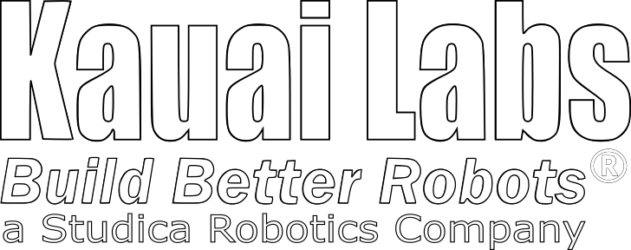Kauai Labs announces the release of the “Second Generation” navX2 – a “drop-in replacement” for the “Classic” navX-Micro sensor, with several upgrades significantly improving accuracy.
In a nutshell, the startup time is now less than 5 seconds, accuracy of pitch, roll and yaw measurements are much improved, and due to lower accelerometer noise levels, the velocity and displacements are significantly improved.
navX2-Micro is completely compatible with the “Classic” navX-Micro, and internally features these upgrades:
- navX2-Micro features the new 6-axis LSM6DSM IMU and LIS2MDL Magnetometer circuits from ST Microelectronics; these modern sensors feature lower noise, higher accuracy and improved shock resistance than the Invensense MPU-9250 found in the “Classic” navX-Micro sensor.
- navX2-Micro features an upgraded onboard microcontroller which doubles the speed of that found on the “Classic” navX-Micro.
- navX2-Micro uses a new Kalman Filter-based algorithm with improved accuracy and running at a much higher 415Hz update rate.
- As a result of these enhancements, yaw drift is now much lower, startup time is reduced to only 5 seconds, and pitch/roll accuracy is also increased.
For more information, visit the online navX2-Micro Product Site.


